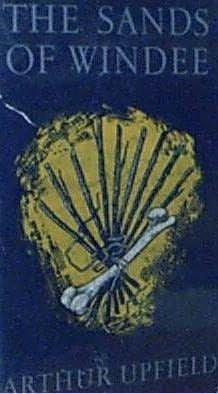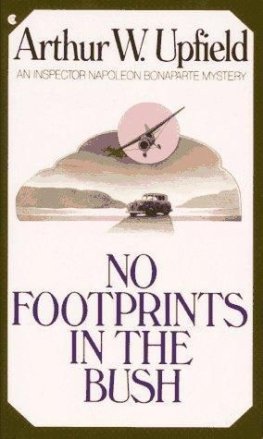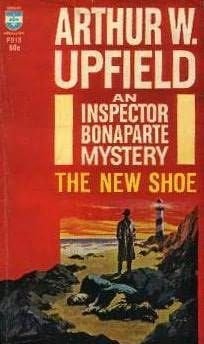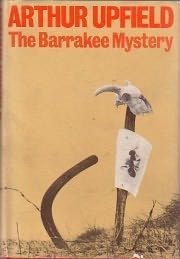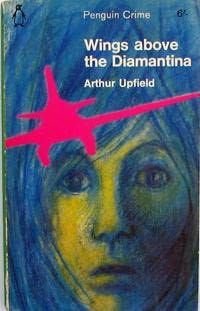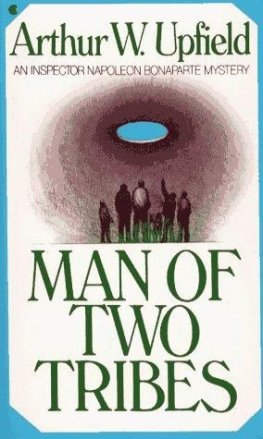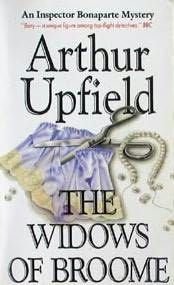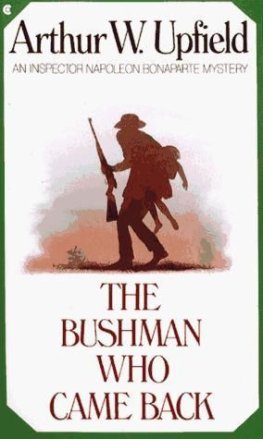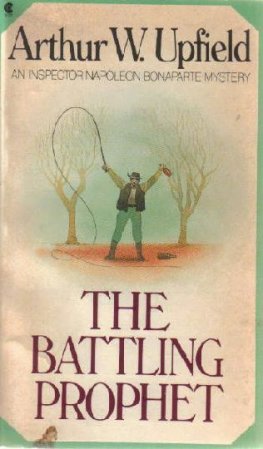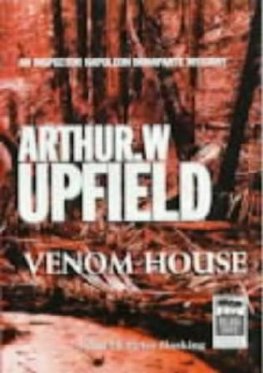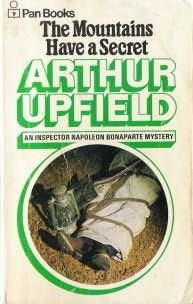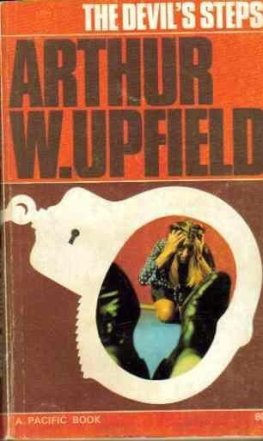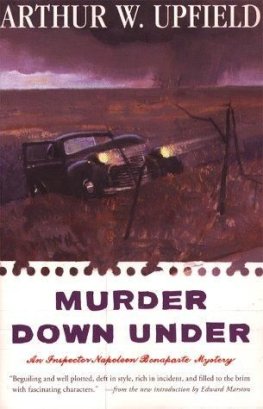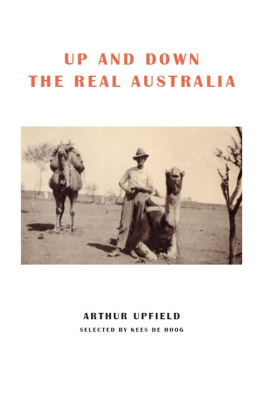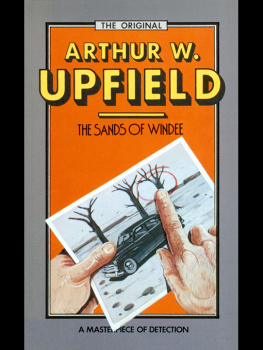Arthur Upfield - Sands of Windee
Here you can read online Arthur Upfield - Sands of Windee full text of the book (entire story) in english for free. Download pdf and epub, get meaning, cover and reviews about this ebook. genre: Detective and thriller. Description of the work, (preface) as well as reviews are available. Best literature library LitArk.com created for fans of good reading and offers a wide selection of genres:
Romance novel
Science fiction
Adventure
Detective
Science
History
Home and family
Prose
Art
Politics
Computer
Non-fiction
Religion
Business
Children
Humor
Choose a favorite category and find really read worthwhile books. Enjoy immersion in the world of imagination, feel the emotions of the characters or learn something new for yourself, make an fascinating discovery.
- Book:Sands of Windee
- Author:
- Genre:
- Rating:3 / 5
- Favourites:Add to favourites
- Your mark:
- 60
- 1
- 2
- 3
- 4
- 5
Sands of Windee: summary, description and annotation
We offer to read an annotation, description, summary or preface (depends on what the author of the book "Sands of Windee" wrote himself). If you haven't found the necessary information about the book — write in the comments, we will try to find it.
Sands of Windee — read online for free the complete book (whole text) full work
Below is the text of the book, divided by pages. System saving the place of the last page read, allows you to conveniently read the book "Sands of Windee" online for free, without having to search again every time where you left off. Put a bookmark, and you can go to the page where you finished reading at any time.
Font size:
Interval:
Bookmark:
Arthur W. Upfield
Sands of Windee
Mr Napoleon Bonaparte
DETECTIVE-INSPECTOR Napoleon Bonaparte, of the Queensland police, was walking along a bush track on his way to Windee Station. On Windee Station, in the west of New South Wales, had happened something that had awakened his interest. Hence his presence in an Australian State not his own. Hence hisgarb as an ordinary bush tramp in search of work.
The season was early October, and summer was well begun. From a stockmans point of view it promised to be for the rest of the year as bounteous as the preceding nine months. Spear grass on the plain, knee-high and golden, rippled as a ripewheatfield. Blue-bush and mulga gleamed with the freshness and fullness of their sap. A flock of newly-shorn sheep which had rumbled away at Bonys approach were in magnificent condition; galahs and cockatoos screamed and screeched, whilst over most of the land the fat and impish rabbit swarmed in astonishing numbers.
It was the third successive good year in New South Wales, and the wonder of it was deeply felt by Mr Bonaparte, who for two years had worked on a succession of more or less sordid cases in drought-bleached Central Queensland. Whilst walking with a bushmans rolled swag of personal necessities within his blankets slung from his right shoulder, and carrying a blackened billy-can half-filled with cold tea, the disguised bush detective hummed the immortal refrain of the Soldiers Chorus inFaust.
He walked with the soft tread of the Australian aboriginal. Of medium height, free from impeding flesh, and hard as nails, there was yet in his carriage more of the white man than of the black. By birth he was a composite of the two. His mother had given him the spirit ofnomadism, the eyesight of her race, the passion for hunting; from his father he had inherited in overwhelming measure the white mans calm and comprehensive reasoning: but whence came his consuming passion for study was a mystery.
Bony, as he insisted on being called, was the citadel within which warred the native Australian and the pioneering, thrustingBritisher. He could not resist the compelling urge of thewanderlust any more than he could resist studying a philosophical treatise, a revealing autobiography, or a ponderous history. He was a modern product of the limitless bush, perhaps a little superior to the general run of men in that in him were combined most of the virtues of both races and extraordinarily few of the vices.
He was seated on his swag fastidiously rolling a cigarette when Sergeant Morris, of the New South Wales police, came into view round a bend of the track. Hearing the hoof-thuds, Bony looked up, saw the sergeants approach, smiled gently, and then completed his task. When the match that lit the cigarette had been tossed aside, the sergeant was opposite the half-caste, and was examining him from his motionless horse.
Day! he snapped.
Good afternoon, Sergeant! replied Bony politely.
Where you heading? the policeman demanded crisply.
Windee-in a pleasant drawl.
It must not be assumed from Sergeant Morriss brusqueness that he was a martinet. He was a dog who growled much and bit seldom, and over his domain, which was half as large as England, he was respected and liked. He questioned Bony, not because he was suspicious of a stranger, but because he had ridden many miles and had fifteen more to ride to his home and office at Mount Lion. Bony presented an excuse for a smoke.
Name? he almost snarled.
Bony, suavely replied the half-caste.
Bony? Bony what?
Baptized by the worthy missionary attached to a northern Queensland mission station with the names of Napoleon Bonaparte. You see, as a very small child, the matron found me eating Abbotts life of that famous man, and she, alas, was a practical joker.
Bony now was not smiling. The sergeants abruptness vanished. For a second his grey eyes were veiled, and then he was off his horse and standing directly facing the half-caste, who had risen to his feet.
Am I to understand that you are the detective-inspector of that name? he asked. Bony nodded. Morris regarded him keenly. He looked into a ruddy-brown face made up of the sharp features of the Saxon; he gazed into the wide-open, fearless blue eyes of the Nordic; and, whilst he looked, the many rumours, and the few authentic cases, which had come to his knowledge of this strange being flashed across his mind. Sergeant Morris shook hands but seldom. He shook with Bony. And Bony smiled. The sergeant knew then that he stood in the presence of a man not only superior in rank, but superior also in mentality.
I have one or two documents to present to you, Bony explained, and, if I may make a suggestion, why not fill my billy-can from your water-bag and make tea whilst I hunt for them in the depths of my swag?
Agreed, Mr Bonaparte, the sergeant said, turning to his horse, which had been standing with the bridle reins hanging to the ground.
If you please-Bony, urged the softer voice.
Sergeant Morris turned. Then he smiled quizzically.
Bony-if you prefer it.
You see, everyone calls me Bony, the detective explained. My three children do. So does my chief. Even a State Governor and a British peer have called me Bony. Although I am the greatest detective Australia has ever known, I am unworthy to polish the top-boots of the greatest emperor the world has ever known. I oftenthink, when the humorous matron named me, that she slighted the Little Corporal.
He was certainly a wonderful man, agreed Morris, lighting the twigs placed around the billy. The sergeants back was turned towards the other, yet he did not smile, although Bonys simple vanity tempted him. It was by no means empty vanity, if only a fraction of the half-castes activities which had drifted to him through official channels were true. Then: Are you here, by any chance, to investigate the disappearance of the man Marks?
Precisely. Here are my credentials.
The sergeant stood up, turned, and took from Bony a long blue envelope. It was addressed to him, and, opening it, the enclosure read:
Sydney,
10-10-24.
Sergeant Morris,
Mount Lion.
After perusing your report on the Marks case Detective-Inspector Napoleon Bonaparte is convinced that it is more serious than a simple bush disappearance. Please render him any assistance for which he may ask. In this matter he will take precedence in authority. Report superintendent.
(Signed)J. T. TOMLINSON,
Chief Commissioner, N.S. W.
Placing the document in a pocket of his smart blue tunic, Sergeant Morris produced a tobacco-pouch and papers and made and lit a cigarette before voicing a comment. He was not free from a feeling of annoyance, for he had thought that the mysterious Marks case was satisfactorily disposed of. The whole affair had occasioned him much arduous labour, and if the result had been indefinite it had given satisfaction in that there could have been no other. The feeling of annoyance was engendered by thefact that his conclusion had a loophole called doubt, and that here was a man who had found the loophole and would probably disagree with all that had been done and require the case to be investigated over again. And then annoyance gave way to pleasant anticipation of seeing this noted sleuth at work; for not only was Sergeant Morris an administrator, he was also an enthusiast in the science of crime detection. The tea made, and poured into an enamelled pannikin and the billy-lid in lieu of a second cup, he seated himself opposite Bony, saying:
Marks disappeared two miles out from the homestead of Windee Station. Rain obliterated tracks, but the surrounding country was well searched. He had a motive for disappearing. What is your theory?
I think it quite probable that Marks was murdered, Bony replied seriously. If eventually I discover he is not murdered, I shall be bitterly disappointed.
Font size:
Interval:
Bookmark:
Similar books «Sands of Windee»
Look at similar books to Sands of Windee. We have selected literature similar in name and meaning in the hope of providing readers with more options to find new, interesting, not yet read works.
Discussion, reviews of the book Sands of Windee and just readers' own opinions. Leave your comments, write what you think about the work, its meaning or the main characters. Specify what exactly you liked and what you didn't like, and why you think so.

